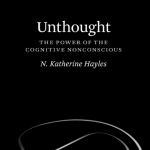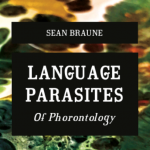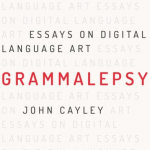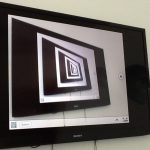electropoetics
Algorithm, Thought, and the Humanities:A Review of Unthought: The Power of the Cognitive Nonconscious

Cognition, as we've known for quite some time, is much larger than consciousness. And that realization can help explain literature's longtime, productive fascination with the unconscious. But today, when a scholar such as N. Katherine Hayles connects "nonconscious cognition to a wide range of technical, financial, and literary issues," we are set to fundamentally rethink the "nature and value of the humanities today."
Electronic Literature in Ireland

O'Sullivan's essay appears at about the same time as a post to the Electronic Literature Organization list, revealing details of the Summer 2019 ELO Conference & Media Arts Festival, to be hosted by O'Sullivan at University College Cork, Ireland: http://elo2019.ucc.ie/
Parasite of a Parasite

For a journal like ebr, long devoted to peer-to-peer reviews (of writers for and by writers), the engagement by Jhave with Sean Braune's Language Parasites suggests a variation on that model. Their parasite-to-parasite encounter bodes well to supplement (if not overtake) the hidden, professionalized peer review models that keeps all of us so busy and so hidden from view - of one another, not to mention our potential audiences. What better outcome for born digital scholarship than the replacement of "double blind" peer review with a "phorontology" of ties that bind, "[extending] its embrace to all"?Sean Braune's publisher has offered ebr readers a free pdf of Language Parasites. Print versions can be ordered from Punctum Books
Riposte to Grammalepsy: An Introduction

From an author celebrated for a career devoted to the digital, Cayley's book offers a cogent demonstration that "verbal language has been ideologically fettered to the medium of print for far too long." Ensslin, in her riposte, notes how Cayley's venture into a pre-digital format resonates with numerous recent works (in print and online; creative and critical), offering a "much-needed pathway out of institutionalized literary systems and practices.
A Response to Strange Metapaper on Computing Natural Language

Aquilna reflects on the reflections in Callus and da Silva's "Strange Metapaper."